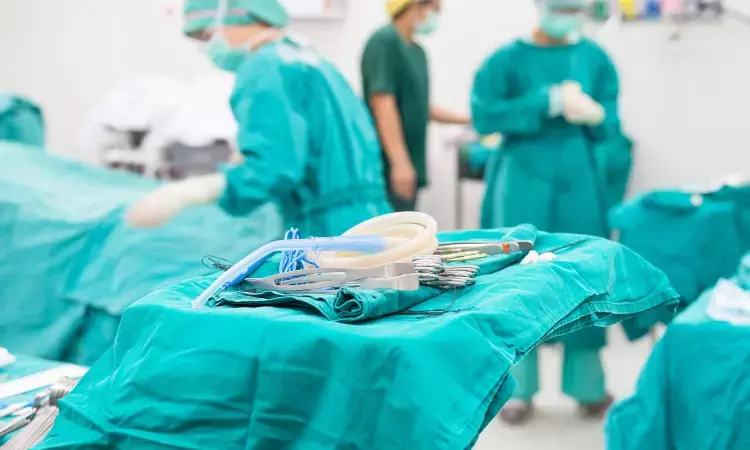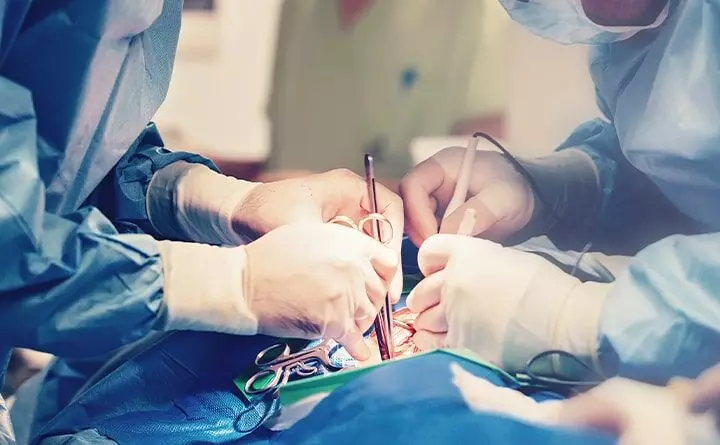- Home
- Medical news & Guidelines
- Anesthesiology
- Cardiology and CTVS
- Critical Care
- Dentistry
- Dermatology
- Diabetes and Endocrinology
- ENT
- Gastroenterology
- Medicine
- Nephrology
- Neurology
- Obstretics-Gynaecology
- Oncology
- Ophthalmology
- Orthopaedics
- Pediatrics-Neonatology
- Psychiatry
- Pulmonology
- Radiology
- Surgery
- Urology
- Laboratory Medicine
- Diet
- Nursing
- Paramedical
- Physiotherapy
- Health news
- Fact Check
- Bone Health Fact Check
- Brain Health Fact Check
- Cancer Related Fact Check
- Child Care Fact Check
- Dental and oral health fact check
- Diabetes and metabolic health fact check
- Diet and Nutrition Fact Check
- Eye and ENT Care Fact Check
- Fitness fact check
- Gut health fact check
- Heart health fact check
- Kidney health fact check
- Medical education fact check
- Men's health fact check
- Respiratory fact check
- Skin and hair care fact check
- Vaccine and Immunization fact check
- Women's health fact check
- AYUSH
- State News
- Andaman and Nicobar Islands
- Andhra Pradesh
- Arunachal Pradesh
- Assam
- Bihar
- Chandigarh
- Chattisgarh
- Dadra and Nagar Haveli
- Daman and Diu
- Delhi
- Goa
- Gujarat
- Haryana
- Himachal Pradesh
- Jammu & Kashmir
- Jharkhand
- Karnataka
- Kerala
- Ladakh
- Lakshadweep
- Madhya Pradesh
- Maharashtra
- Manipur
- Meghalaya
- Mizoram
- Nagaland
- Odisha
- Puducherry
- Punjab
- Rajasthan
- Sikkim
- Tamil Nadu
- Telangana
- Tripura
- Uttar Pradesh
- Uttrakhand
- West Bengal
- Medical Education
- Industry
Thane Hospital doctors succesfully treat Ano Rectal Malformation in 1-year-old boy

Thane: In a remarkable case, doctors at Wockhardt Hospitals in Thane have successfully treated a one-year-old boy born with multiple complications, including the absence of an anus, officials announced on Wednesday.
Child specialists Bhavesh Doshi and Nitu Mundhra addressed the child's condition known as 'Ano Rectal Malformation' (ARM), which meant the baby lacked a rectal opening. Additionally, the child faced challenges such as tongue-tie, where the tongue was stuck to the floor of the mouth, and Hypospadias, a condition where the urinary outlet is misplaced.
The newborn’s parents — identified as the Salian couple — were shocked to learn of these issues in their first child, whom the doctors admitted to the hospital’s neonatal intensive care unit (NICU), and put on parenteral nutrition as breastfeeding was not feasible, reports IANS.
Mundhra said ARM is rare, seen just once in about a lakh deliveries, and in the delivery room, all the newborn babies are thoroughly examined from head to toe to detect any abnormalities, especially if they are born with a problem.
“In this baby, when we detected ARM, we checked him thoroughly and found the tongue-tie which could affect his feeding and lead to speech difficulties and also Hypospadias. After counselling the parents, the baby underwent multiple surgeries,” said Mundhra.
In this case, after detecting ARM, the medical team identified additional concerns like tongue-tie and Hypospadias. The child underwent five procedures including colostomy, anal reconstruction, and colostomy closure to address ARM issues, alongside procedures for Hypospadias and tongue-tie.
The ARM correction was done in three surgical steps, comprising a temporary opening to allow passage of stool and enable the baby to feed. Two months later, a four-hour-long operation was performed to create a new anus at the normal position, and after two more months, another surgery was performed for colostomy closure.
During this surgery, the opening created in the abdominal wall was closed and the baby now passes motions normally from the opening, said the medicos.
According to an IANS report, Eight months after the surgery, the child underwent a major surgery for Hypospadias to get the urinary opening in the normal position, which was also successful and the child can now pass urine without any difficulty.
Now the child is one year old and functions like other kids of his age after undergoing five surgeries in the first 12 months of his life.
 Also Read:Mumbai doctors successfully treat patient with a Rare Complication of DVT
Also Read:Mumbai doctors successfully treat patient with a Rare Complication of DVT
Sheeba Farhat Joined Medical Dialogues in 2018 to report on the latest Education news. A Graduate of the University of Delhi, she specializes in covering stories related to Medical Education updates. For inquiries or further information, you can reach her at editorial@medicaldialogues.in.


